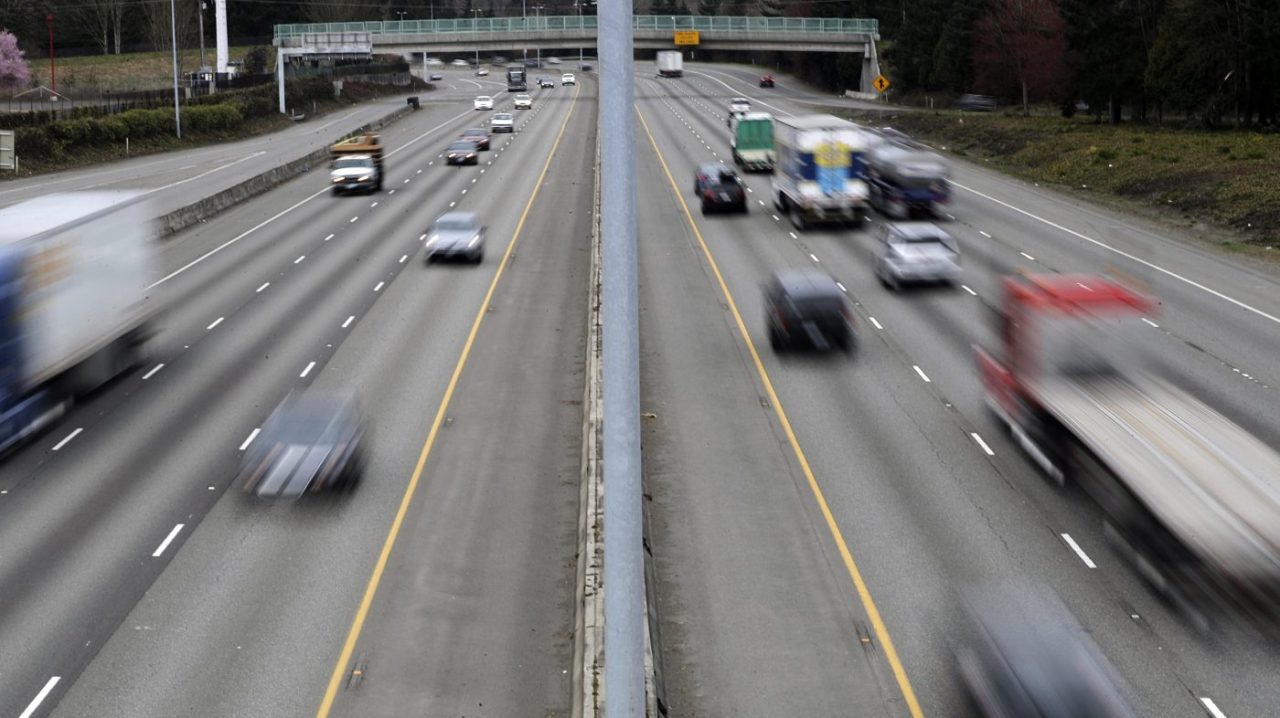A coalition of local officials from across the country are calling on Congress to oppose proposed legislation that will allow an increase in the length and weight of large trucks traveling on commercial highways.
…
“Longer and heavier trucks would cause significantly more damage to our transportation infrastructure, costing us billions of dollars that local government budgets simply cannot afford, compromising the very routes that American motorists use every day.”
This is simply Congress’ solution to a truck driver shortage … allow longer, heavier trailers that will create more toxic CO2 levels and disaster-level gridlocks in major cities.
Congress really aren’t the sharpest tools in the shed.
It’s tough on the roads, but less trucks (even if each one is producing slightly more CO2 than usual) would be a net decrease in CO2 overall. Drivers better be on point though, the extra momentum is nothing to play around with.
A single, heavier truck is going to be more efficient than two lighter trucks. And create less gridlock.
I don’t doubt that this has something to do with the driver shortage but that doesn’t mean this is a bad idea. In fact, it might be a good one.
I say we go all the way and use even smaller numbers of extremely large trucks, and put them on specialized roads made out of two metal rails. I bet the efficiency of these “rail roads” would be far far superior!
Railroads are great and we should encourage investment in those.
Yeah, they are pretty heavily used for anything that needs to go hub to hub on a ‘when it gets there’ schedule. However, I find it ironic that the majority of pro-train individuals complain heavily about cargo trains making the train system worse.
It’s not the cargo trains that make the system worse, it’s the prioritization of cargo over passenger rail along with lack of investment. If they spent even half the money on rail that they do on automobile roads we’d have one hell of a good rail system.
The highway system costs 200-400 billion dollars a year split between state and federal government.
Meanwhile Amtrak gets about 1.5 billion dollars from the federal government.
It’s pretty simple. More investment to build more robust and more connected lines. High traffic lines could be multiple rails wide, so faster passenger trains (which are time sensitive) can pass slower freight trains.
The issue with our rail infrastructure is that lines have been reduced over and over. Also, despite legally amtrak being given priority, they rarely do get it. Freight trains are often too long to be able to let them pass, so they are no longer legally required to get out of the way, because there isn’t an alternative for them.
Freight causes issues with the current system, but it is not required to cause issues. It only causes issues because we have chosen to not invest in improving things.
There’s the comment I was scrolling for.
Road wear scales as a cube of vehicle weight, so unless the heavier trucks are only 4.6% heavier than two trucks they’ll cause more damage to the roads while consuming less fuel and therefore producing less fuel tax revenue which is used to repair the roads.
Road wear scales as a cube of vehicle weight
Per axle.
consuming less fuel
This is a good thing
Yes, and unless that road weight per axle is only 4.6% higher it’s going to cause more road wear than just using two trucks.
And consuming less fuel is good, provided we find a way to pay for the increased repairs we’ll need.
The federal diesel tax rate is 24.4 cents/gallon and hasn’t been changed since 1993 [not indexed to inflation], a time period that’s seen other inflation raise prices by some 65-75%.
Congress really aren’t the sharpest tools in the shed.
What do you mean? Their entire purpose is to funnel as much money as possible to the ruling class. This is the point.
Hey, they got some truck drivers to drive for negative pay already. It turns out they can’t convince the rest.
I seem to recall a news story in the 80s (maybe 20/20?) about how dangerous double and triple trailer trucks were on the highway. I guess the industry thinks it’s been long enough to try pushing for this again.
I guess the industry thinks it’s been long enough to try pushing for this again.
Yeah, it’s really sad how people are paid everyday to think of ways to cut corners and lower standards so rich people can make more money.
It never ends.
What if we increased the number of trailers to 12 or something… But the trucks will be so dangerous that we should give them their own separated lane… And then we can build these massive trucks that can pull 100 trailers at once…
Pretty sure doubles are legal in most states and triples are legal in a number of states as well. I don’t see any length increase details in the article, though it does mention longer trucks. The only specific mentioned is higher gross weight.
Ahh man, I hope this gets passed through. The next step would be to restrict the speed of trucks on the highway and prevent trucks overtaking trucks.
After this I hope to see a greater implementation of cargo trains for large distances between distribution hubs, with small cargo trucks for the final leg.
So, a lot of states have been changing the design truck from the federal standard to something heavier based on the traffic they are seeing. So, if the federal government is going to accept the heavier trucks, they are going to have to accept the affect these trucks have on the nation’s highways.
Or just do what railroads did and design roads for the heaviest train of trucks full time forever, but that is kind of expensive and the federal government doesn’t want to spend the money if they don’t have to.
Not just highways. Most of these are still going to travel on some locally maintained roads for at least some distance to drop off their goods. They should weigh less than 2 trucks, but will also potentially pack more weight into less space than 2 trucks (depending on loads).
What will this mean for red light durations and the yellow change phase? It takes a lot to slow these babies down.
There may need to be a re-evaluation of stopping distances, but as strong distances haven’t really been updated over time, I don’t see that being a major issue.
I don’t think it means anything different for traffic signals. The biggest trucks mostly stick to highways, even small state highways, that don’t have many signals. And where they do, they’re probably going up be going slow enough already that it’s not going to make a difference.
Ohio has questions
After they stop coughing, of course
Shh… just let Michigan send whatever across the border.
Would think they’d invest in public transit, trains, and other stuff to lessen the burden on the road, but that’s asking too much. Esp for people like me who are slowly losing the ability to want to drive despite the necessity. It’s just rough being audhd let alone anything else where that causes issues but you can’t get anywhere without driving or walking distances that just aren’t possible bc sidewalks and other pedestrian friendly things don’t exist now 😭
Commercial highways is not a term I’ve heard before.








